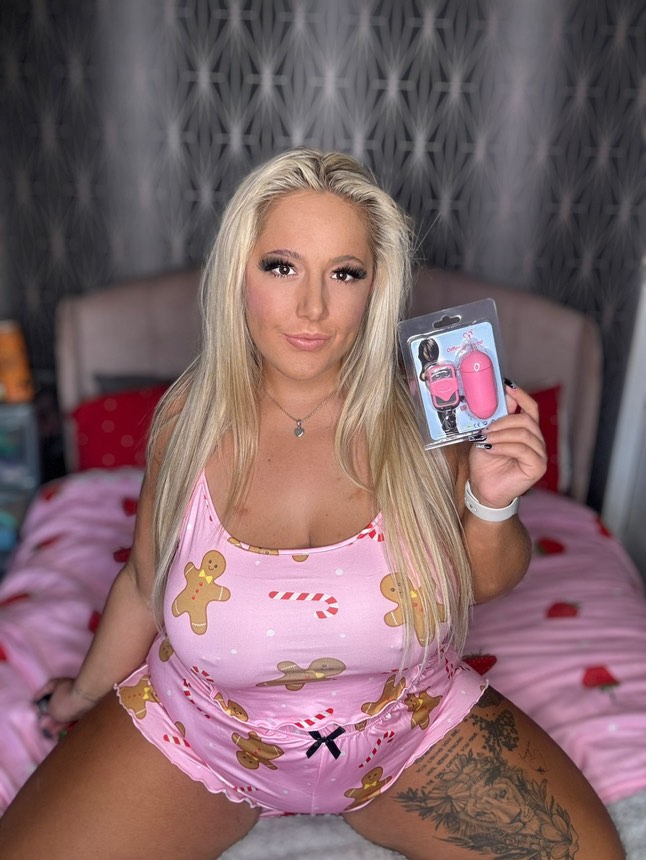Why Friends With Benefits Often Ends In Complicated Feelings

Blurred Boundaries
When individuals enter into a friends with benefits arrangement, they often assume that the arrangement will be mutually beneficial and straightforward. However, this type of relationship can quickly become complicated and emotionally charged, leading to unintended consequences.
In a friends with benefits setup, the boundaries between friendship and physical intimacy are blurred. This blurring can lead to feelings of confusion, uncertainty, and discomfort for both parties involved. As one or both partners begin to develop emotional attachments, the arrangement can shift from a casual, no-strings-attached agreement to a more complex web of emotions, making it challenging to navigate the relationship.
Additionally, friends with benefits arrangements often lack clear communication, which can lead to misunderstandings and resentments. Partners may find themselves feeling hurt, jealous, or insecure about each other’s behavior, causing tension in what was initially supposed to be a casual arrangement.
Ultimately, the blurring of boundaries in friends with benefits relationships can lead to complicated feelings, damaged friendships, and even emotional scars. It’s essential for individuals to approach these arrangements with caution, clear communication, and a deep understanding of their own emotions and needs to avoid getting caught up in a complex web of emotions.
Difficulties in Communication
The phenomenon of friends with benefits, where two individuals engage in physical intimacy while maintaining a platonic relationship, often ends in complicated feelings due to blurred boundaries and difficulties in communication.
In such relationships, the lines between friendship and romance become increasingly ambiguous, leading to mixed signals and conflicting emotions. As time passes, one or both parties may start to develop romantic feelings, which can be challenging to navigate.
One of the primary challenges is the lack of clear communication about intentions, expectations, and boundaries. When friends with benefits fail to discuss their desires, needs, and concerns openly, they risk misinterpreting each other’s actions or words, leading to hurt feelings, misunderstandings, and frustration.
The blurred boundaries also create a sense of uncertainty and instability in the relationship. Without a clear understanding of what is and isn’t acceptable behavior, both parties may feel uneasy about expressing their emotions or desires, fearing it might disrupt the status quo.

Furthermore, friends with benefits often struggle to separate their physical attraction from their emotional connection. As the physical aspect becomes increasingly intimate, it can be difficult to maintain a purely platonic relationship, leading to feelings of guilt, shame, or anxiety.
The difficulties in communication and blurred boundaries in friends with benefits relationships can lead to a breakdown in the relationship, resulting in hurt feelings, disappointment, or even the loss of the friendship altogether. In some cases, one party may feel taken advantage of or used, while the other may feel guilty about their own desires.

In conclusion, the challenges of navigating friends with benefits relationships are numerous and complex. The lack of clear communication, blurred boundaries, and difficulties in expressing emotions can lead to complicated feelings and ultimately, a demise of the relationship.
Emotional Entanglement
Emotional entanglement is a complex and often messy state of being, where two people develop strong emotional connections despite not having a traditional romantic relationship. In the context of “friends with benefits” arrangements, this can lead to complicated feelings that can be difficult to navigate. When individuals enter into an emotionally intimate arrangement without the expectation of commitment or labels, they may experience a blurring of boundaries and a deepening of emotional connection. This can ultimately result in feelings of uncertainty, confusion, and vulnerability, making it challenging to maintain the arrangement and potentially leading to its demise.
Complicated Feelings for Each Other

Emotional entanglement can occur when friends engage in a casual relationship without clear boundaries or expectations, leading to complicated feelings for each other. This phenomenon often arises from a combination of emotional intimacy, shared experiences, and physical closeness.
The blurring of lines between friendship and romance can cause individuals to experience a range of emotions, making it difficult to distinguish between platonic and romantic feelings. This confusion can lead to awkwardness, uncertainty, and ultimately, complicated feelings that may be challenging to navigate.
As friends with benefits often prioritize physical attraction over emotional connection, the absence of vulnerability and deep communication can perpetuate the entanglement. The lack of clear labels or commitments can create a sense of limbo, leaving both parties uncertain about their emotions and the nature of their relationship.
The complexities of emotional entanglement can be further complicated by the fact that friends may feel a strong sense of loyalty and commitment to one another, making it difficult to acknowledge or act on romantic feelings. This internal conflict can lead to feelings of guilt, shame, or anxiety, exacerbating the already complex emotions.

Ultimately, emotional entanglement in friendships with benefits requires effort, communication, and clarity to untangle. It’s essential for individuals to acknowledge their feelings, set boundaries, and prioritize open dialogue to prevent complicated feelings from arising or worsening over time.
Jealousy and Possessiveness
Jeanette Winterson once said, “The only true currency in this bankrupt world is what you share with someone when you’re uncool.” This sentiment encapsulates the complexities of friendships that blur into something more intimate, such as Friend with Benefits arrangements. While these relationships may be designed to be casual and enjoyable on the surface, they often lead to complicated feelings and tangled emotions for all parties involved.
Unhealthy Patterns of Behavior
Jeanette and Mike had been friends for years, and one night, they decided to take their relationship to a physical level by starting a friends with benefits arrangement. On the surface, everything seemed fine – they enjoyed each other’s company, shared intimate experiences, and maintained a strong emotional connection.
However, as time went on, subtle changes began to creep in. The boundaries that once defined their relationship started to blur, and possessiveness crept in. Mike found himself becoming increasingly jealous of Jeanette’s interactions with other men, even if they were just casual encounters. He would get agitated when she talked about her ex or another guy who had shown interest.
Meanwhile, Jeanette felt suffocated by Mike’s constant need for reassurance and his attempts to control every aspect of their relationship. She began to feel like he was possessive and controlling, which led to feelings of resentment and frustration. The emotional connection they once shared started to fray, and the arrangement that had seemed so convenient and appealing initially became increasingly complicated.
As their friendship turned into a romantic relationship with strings attached, both partners struggled with jealousy and possessiveness. They found themselves stuck in an unhealthy pattern of behavior, where one person’s needs were constantly being prioritized over the other’s desires and emotional well-being. luxury vibrators UK
The friends with benefits arrangement had started out as a way to satisfy their physical desires without the emotional baggage that comes with traditional dating. But ultimately, it was this very arrangement that led to complications in their relationship, highlighting the need for open communication, mutual respect, and trust if any romantic relationship is going to work.
Difficulties in Closure
Dating as it seems today, has become increasingly casual and flexible, and one trend that has gained significant attention in recent years is the concept of “Friends with Benefits” (FWB). This arrangement has its benefits, such as increased intimacy and reduced expectations for emotional commitment, but like any relationship, it too can have its drawbacks. One of the most significant challenges associated with FWB is the difficulty in achieving closure when the arrangement comes to an end.
Uncertainty and Ambiguity
The concept of a friends with benefits (FWB) arrangement can be a complex and nuanced one, filled with difficulties that often lead to complicated feelings. At its core, a FWB relationship involves a level of intimacy and physical connection between two individuals who also maintain a friendship. This blurring of boundaries can create tension and uncertainty, particularly if the parties involved are not on the same page or have differing expectations.
One of the primary difficulties in closure is that FWBs often struggle to define their relationship status. Are they simply friends with benefits, or has something more romantic developed? The ambiguity surrounding this question can lead to confusion and discomfort, making it challenging for either party to feel secure or confident in the arrangement.
Another obstacle is the lack of emotional intimacy. While physical intimacy may be present, deep emotional connection and vulnerability are often absent. This can result in a sense of disconnection or isolation, even within a relationship that is supposed to provide companionship and support. As a result, FWBs may find themselves feeling lonely or unfulfilled, despite their physical proximity.
Furthermore, the FWB dynamic can be vulnerable to miscommunication and misunderstandings. The lack of clear boundaries and expectations can lead to hurt feelings, jealousy, or resentment, which can eventually sabotage the relationship. The fear of losing the friendship aspect of the arrangement can also create tension, as individuals may feel pressured to maintain a facade of normalcy while secretly harboring complicated emotions.
Ultimately, the complexities and uncertainties inherent in FWB relationships make it difficult for them to achieve closure. The blurred lines between friendship and romance, combined with the emotional unavailability that often accompanies physical intimacy, can lead to feelings of confusion, uncertainty, and heartache. As a result, even the most well-intentioned FWBs may find themselves struggling to navigate the intricacies of their arrangement, ultimately leading to complicated emotions and a sense of unfinished business.
Shop Swan vibrators for luxurious and powerful pleasure at Peaches and Screams Shop Hot products for heated pleasure at Peaches and Screams Shop rechargeable cock rings for convenience and power at Peaches and Screams Buy Sharon Sloane lingerie for stylish and seductive designs at Peaches and Screams Buy erotic chocolate body paint for playful fun at Peaches and Screams Discover plus-size stockings and hosiery at Peaches and Screams
Press on Honey Bye Bye Belly Blog Lottie London Aesthetics Your Relationship Edge
- Why Gaslighting Is A Toxic Behavior In Any Relationship - November 8, 2025
- What Is The Downtime For A Liquid Facelift? - November 5, 2025
- What Are The Best CBD Infused Gummies For Focus - November 4, 2025
